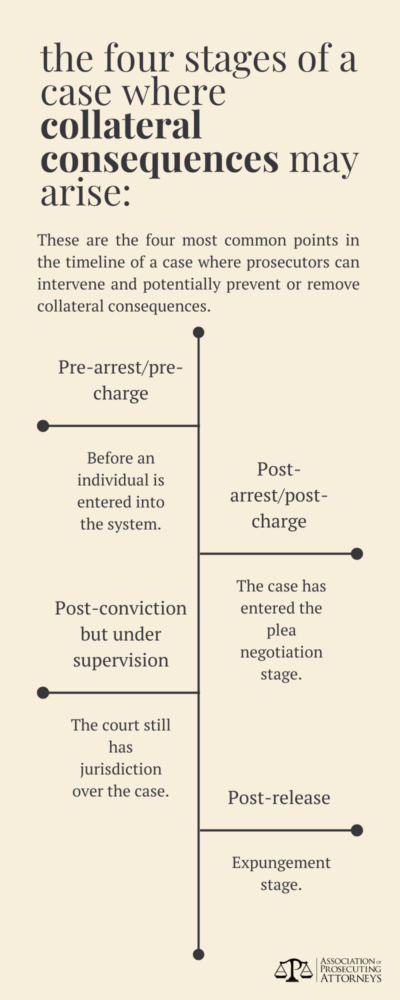
Post-Arrest/Post-Charge
After a person is arrested or charged with a crime, their personal information is often entered into a database which is accessible by law enforcement and often prosecution and court personnel as well. Many jurisdictions track these arrests, regardless of outcome, and do not remove these entries or otherwise automatically expunge them if there is a dismissal, diversion, or non-plea/non-guilty verdict outcome (see “Post-Release” below), meaning that there is always a continuous record of how many times an individual is arrested or charged with a crime. Seeing the number of times a person has been arrested, particularly for certain crimes, can impact how the criminal justice system handles their case. For example, this can take the form of a harsher plea deal or higher sentencing from the court.
It is at this stage that prosecutors can intervene and divert the developing case before it becomes a permanent conviction on someone’s record, something that carries with it lifelong consequences. Additionally, required court appearances post-charge can begin to impact an individual’s employment and financial situations (as they may miss work, and coordinating transportation to and from court, paying for parking, and navigating other associated fees like hiring a private attorney or paying filing costs may impact someone’s finances). This intervention can be diversion either within or outside of the court system, arbitration, dismissal and expungement, waiver of fines and fees associated with court costs, and other remedies that intercede before additional collateral consequences can accrue.
